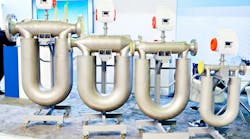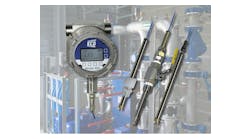Four of the nation’s largest home builders have agreed to pay civil penalties totaling $4.3 million to resolve alleged violations of the Clean Water Act, the Justice Department (www.justice.gov) and Environmental Protection Agency (www.epa.gov) reported today. The companies also have agreed to implement company-wide compliance programs that go beyond current regulatory requirements and put controls in place that are designed to keep 1.2 billion pounds of sediment from polluting our U.S. waterways each year.
The home builders that have agreed to pay the penalties are Centex Homes (www.centexhomes.com), based in Dallas; KB Home (www.kbhome.com), based in Los Angeles; Pulte Homes (www.pulte.com), based in Bloomfield Hills, Mich.; and Richmond American Homes (www.richmondamerican.com), based in Denver. The four separate settlements resolve alleged violations of stormwater runoff regulations at construction sites in 34 states and the District of Columbia. Each company will pay the following penalties:
- Centex: $1,485,000
- KB Home: $1,185,000
- Pulte: $877,000
- Richmond: $795,000
Pulte Homes has also agreed to complete a supplemental environment project at a minimum cost of $608,000. The project will reduce the amount of sediment going into a northern California watershed and improve the habitat for aquatic life.
Along with the federal government, seven state co-plaintiffs have joined the settlements. Those states include Colorado, Maryland, Virginia, Missouri., Nevada, Tennessee, and Utah. Each of the seven states will receive a portion of the penalties based on the number of sites located within that state.
Combined, the four builders accounted for more than 124,000 home closings in 2006, and are ranked nationally among the top ten builders in terms of home closings and revenues.
The government complaints allege a common pattern of violations that was discovered by reviewing documentation submitted by the companies and through federal and state site inspections. The alleged violations include not obtaining permits until after construction had begun or failing to obtain the required permits at all. At the sites that did have permits, violations included failure to prevent or minimize the discharge of pollutants, such as silt and debris, in stormwater runoff.
The settlements require the companies to develop improved pollution prevention plans for each site, increase site inspections, and promptly correct any problems that are detected. The companies must properly train construction managers and contractors, and are required to have trained staff at each construction site. They also must implement a management and internal reporting system to improve oversight of on-the-ground operations and submit annual reports to EPA.
For more information on the settlements, visit www.epa.gov/compliance/resources/cases/civil/cwa/homebuilders.html.

